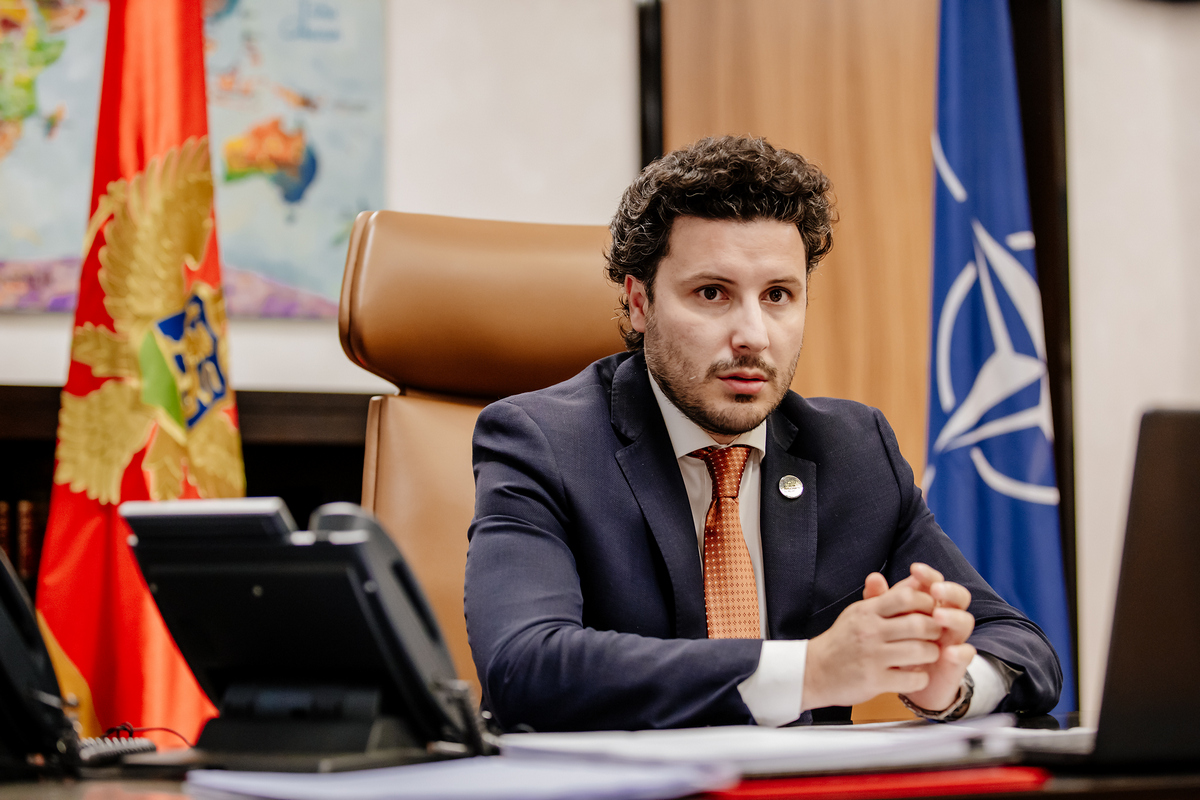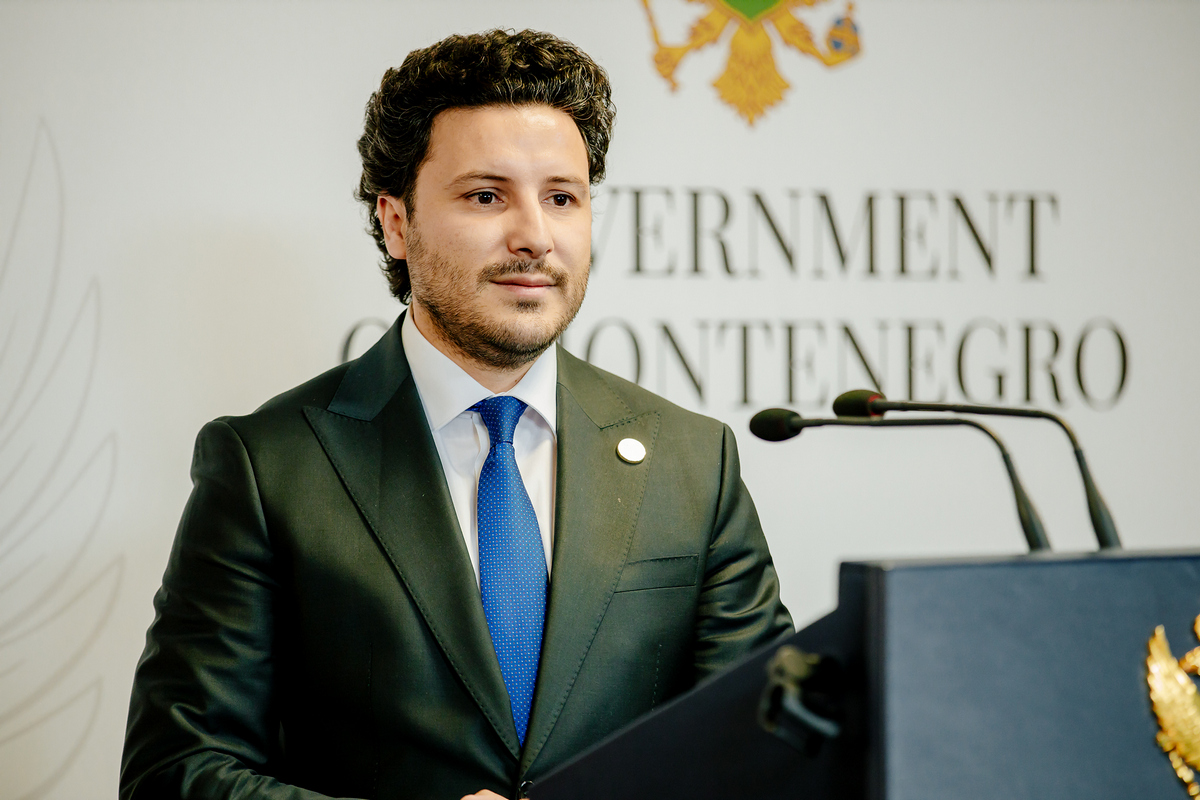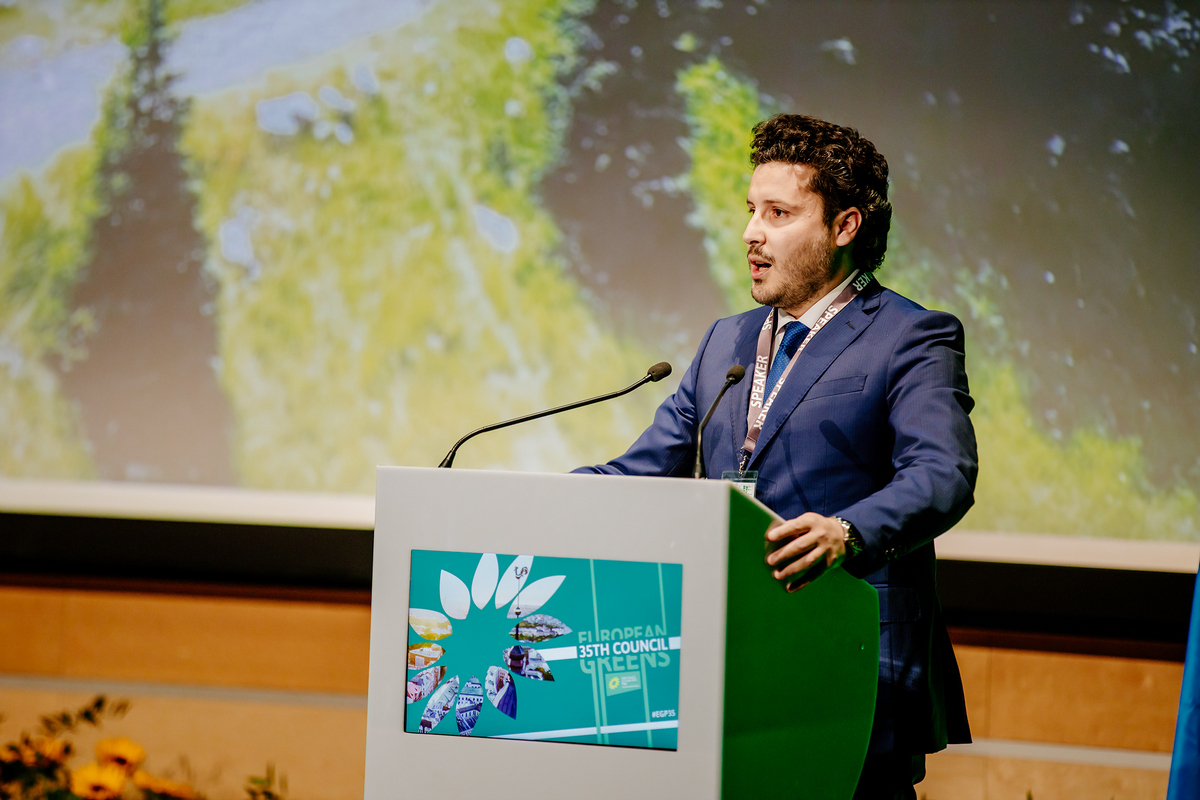Montenegro is a leader in the European integration process, and I am confident that our experiences can be useful to other Western Balkan countries in the accession process
After the first official visit of the Prime Minister of Montenegro, Dritan Abazović, to Serbia, we spoke with this young leader whose approach to politics brings a long-awaited and very important change in our region. In the interview for our magazine, Mr. Abazović spoke about the ever-improving relations between Serbia and Montenegro and the possibility of Montenegro joining the Open Balkans initiative. He also talked about Montenegro’s relations with its neighbours, the signing of a fundamentally important agreement with the Serbian Orthodox Church, his political enemies, and his views of different and often conflicting policies.

You said “the Open Balkans initiative is a child of the Berlin Process.” Do you think that if Montenegro joined this initiative, it would expedite its EU accession? What do you think are the benefits of Montenegro joining the Open Balkans?
Montenegro is a leader in the European integration process and I am confident that our experiences can be useful to other Western Balkan countries in the accession process. Likewise, I believe that there is no better country for reviving the EU enlargement policy than Montenegro, a Mediterranean country with a conciliatory character, a population that would not cause negative effects on the EU itself and that is a positive example in many aspects.
In terms of the Open Balkans initiative, the Government and I, as the Prime Minister, gave a task to the Ministry of European Affairs to create a working group that will draft an analysis that will assess the positive and negative effects of the Open Balkans initiative on Montenegro. I think that the initiative can bring a lot of positive effects that the Western Balkans need like fewer borders, better economic cooperation and improved neighbourly relations. I also believe that this is in line with the Berlin Process and can only benefit the Western Balkans’ integration into the EU.
On 29th June, following the invitation of Prime Minister Ana Brnabić, you had your first official visit to Serbia since you became the Prime Minister of Montenegro. What did you discuss with the Serbian officials and is this meeting the first step towards the normalization and progress of relations between our two countries?
We discussed the necessity of normalizing relations between the two brotherly states and intensifying economic cooperation in several aspects. There is definitely been progress in relations and we will soon appoint new ambassadors and establish payment transactions. A large segment of all the talks in Serbia concerned the upcoming economic crisis this autumn and the strategy of how the region and the two countries can best deal with it, as well as infrastructural connectivity. These are the topics on which we should base our cooperation in the future. I believe that this will initially imply a departure from the politics of hatred and division that characterized the region in the past. Cooperation in agriculture, environmental protection and the IT sector is also something on which our collaboration will develop in the future.
Negotiations on the Basic Agreement, on the back of which Montenegro should resolve the property-related and legal issues with the Serbian Orthodox Church (SOC), have been ongoing for ten years. Are we going to see the resolution of this decades-old issue soon?
A few days ago, the Government adopted the proposal regarding a harmonized text of the Basic Agreement between Montenegro and the Serbian Orthodox Church. We can say that the Agreement is fully in line with our state’s Constitution and laws and that it provides comprehensive protection of Montenegro’s national interests, while, at the same time, giving the SOC the same rights and obligations that all other religious communities have in our country. We are closing a topic that has been a burden on our society for a decade and we are looking toward the future and topics concerning the development of Montenegro and the region.

You are often labelled as an Albanian who has a more favourable approach to Serbia than many Montenegrins. You want to prove that cooperation between Serbs and Albanians is possible. In the light of the dialogue, will the policy of the Montenegrin government towards Kosovo and Metohija remain the same?
I choose not to dwell on almost daily labelling of myself coming from almost every national group. I promote the policy of peace, coexistence and cooperation in the Western Balkans. I know this is a Sisyphean task, but you have to start somewhere. I am not interested in the national, religious or political affiliations of people. We are people first of all, and only then Montenegrins, Serbs, Albanians, Bosniaks… Accordingly, I conduct the state’s policies, talk to people and look for the best solutions to get out of difficult situations.
I promote the policy of peace, coexistence and cooperation in the Western Balkans. I know this is a Sisyphean task, but you have to start somewhere
Montenegro completely follows the EU’s policy concerning the Republic of Kosovo, with whom we have good cooperation on several grounds and with whom we will further improve relations and work on much better infrastructural connectivity.
In Davos, and recently in Ukraine, you met your Albanian counterpart, Edi Rama. Could you tell us something about the relations between Montenegro and Albania?
Relations between the two countries are traditionally excellent and have improved a lot in the past period. Just like with Serbia, we have been developing our cooperation on mutual trust and stronger economic and infrastructural connections. During our meeting in Ohrid, at the summit of the Open Balkans initiative, we presented a joint project for the construction of a bridge over the Bojana River that will reduce the distance between Ulcinj and Velipojë from the current 73km to just 1km. This is our vision – bridges that connect and make borders invisible.
Almost two years ago, the Montenegrin government changed when the opposition defeated the Democratic Party of Socialists (DPS). In your speech back then you said that DPS voters were not enemies. What kind of relations do you have with the still current President of Montenegro, Milo Djukanović? To what extent is it possible to implement the government’s plans while having a president from another party?
The government I helm, the political entity I represent and I personally have no enemies of that kind. We can be political rivals, but not enemies. That’s a narrative from an ugly past. We have a different, inclusive policy where everyone is welcome. Montenegro must reconcile, but on clear grounds – it has to be a civil, environmentally friendly, EU-centric Montenegro, which opposes organized crime and corruption.
We can be political rivals, but not enemies. That’s a narrative from an ugly past. We have a different, inclusive policy where everyone is welcome
Relations between the Prime Minister and the President of Montenegro are professional. In 2020, for the first time in its history, the country experienced what is called cohabitation in political theory, and this is good for the democratic progress of any society.

The main topics that you represented as the opposition were the fight against crime and corruption. Is that fight still a priority and what measures are you taking to implement that plan?
Economic development, the European integration process and the fight against crime and corruption are the main proclaimed lines of action of the 43rd Government of Montenegro. I believe that these aspects are intertwined. In the previous period, we fought and won for Montenegro to have the Law on the State Prosecutor’s Office, which enabled the required changes to happen in a crucially important institution for the fight against crime and corruption.
A large segment of all the talks in Serbia concerned the upcoming economic crisis this autumn and the strategy of how the region and the two countries can best deal with it, as well as infrastructural connectivity
Today, this is an independent institution that has already achieved visible results. Nevertheless, the issue of the Judiciary will be completed when we reach a political consensus with 2/3 or 3/5 of the parliament members and elect a full-term Supreme State Prosecutor, new members of the Constitutional Court and the Judicial Council and unblock the work of the institutions necessary for the regular operation of the state apparatus.
You also said that relations with Serbia are a priority and that you are ready for strong cooperation in all segments of mutual interest. How can the relations between our two countries improve and how will the cooperation between Serbia and Montenegro develop in the coming period?
Our relations must be based on the future, not on the past, on joint projects and visions that will change the Western Balkans, as well as facilitate a faster and better flow of goods, services, and transport. I think the recipe for a better future is simple.
The rights we seek for ourselves must be given to others too
Diplomacy&Commerce magazine interviewed the Prime Minister of Montenegro, Dritan Abazović, at the moment when, on the internal front, there was a lot of controversy surrounding the signing of the Basic Agreement with the Serbian Orthodox Church. The destiny of this agreement remains uncertain after Milo Djukanović’s Democratic Party of Socialists (DPS) confirmed that they would not vote in favour of the Agreement. Mr Abazović, however, advocates that this issue, “which has been burdening our society for a decade”, finally be closed and that we focus on the future. As he has said in many previous statements, he believes that the rights we seek for ourselves must be given to others too. This is exactly what the Serbian Orthodox Church Patriarch, Porfirije, also said, namely, that the Serbian Orthodox Church does not ask for more or less than what other religious communities have.